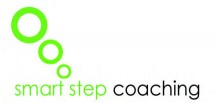 Is wisdom something we can acquire?
Is wisdom something we can acquire?
Can we become wiser?
Many of us think that wisdom comes with age and experience. The fact is that many people do not necessarily grow wise with age and experience because they never utilize their experience to teach themselves anything. They therefore continue to repeat the same experience again and again, without changing, improving or learning from it. Have you ever met someone like that? Worse still have you ever realized you are doing exactly that? I know I have!
Take a look at the Collins Dictionary definition of wisdom: – the ability or result of an ability to think and act utilizing knowledge, experience, understanding, common sense, and insight (emphasis added)
I’m sure you’ve heard a saying that goes something like this. If you keep repeating the same actions you will keep getting the same results.
Studies on effective leadership show that some leaders show great wisdom and others not so much; here are some of the defining characteristics of leaders that demonstrate acquiring wisdom well.
Stopping
Unwise leaders move on very quickly from one project to another without stopping and learning. Having a sense of urgency is a good thing. I once went to a leadership conference where we were told not to recruit someone that would not ‘jay walk’ when you took them out to lunch. (Jay walking means to cross or walk in the street or road unlawfully or without regard for approaching traffic). The point of this being you want people who are motivated to get where they want to get to, quickly. So a sense of urgency is good, but moving on from project to project, going from year to year in your business or your life without stopping and taking the time in between to rest, learn and build your wisdom tanks is not good.
How are you at stopping? If you are not great ask yourself: – What stops me from stopping?
For me, I have tended to not leave enough space and gaps in my schedule. Then the big one is a belief that, if I stop a momentum that I have created it won’t get started again. Let’s just laugh at that!
My brother used to tease me and say ‘quiiiiick’ as he watched me rush from thing to thing. Friends used to simply relay the word, ‘next!’ as they listened to my news, indicating how I used to move on really quickly.
Reflection
Do you know that personal reflection is a tool to acquire wisdom? Wise leaders use reflection a lot!
An unexamined life is not worth living – Socrates
To stop and reflect fully on what happened, what went well, what went less well, what could have been done differently, what to keep doing and what to stop doing, is a simple but hugely effective way to increase your wisdom. I find it’s good to do a self- evaluation as well as getting feedback from people involved and people outside the situation.
Why self-examination? This part is important for me as I like to connect not just with my logical intellectual self but also my heart and spirit. My logical intellectual self can evaluate strengths and facts about what succeeded, whereas my heart can evaluate my emotions and feelings, which tap into that invaluable intuition we all have. Your intuition will often tell you more than your brain! I find that evaluating my feelings is also a good way of guiding me through keeping my motivation and inspiration switched on.
Then, asking for feedback from other people gives you more data and makes your own evaluation more objective, covering any blind spots you may have and giving you the benefit of other perceptions and ideas.
Reflecting is externalizing. You can write down thoughts, just dumping everything onto the page or mind mapping. Speaking it works also, to a friend, a mentor or coach.
Application of learning
Next comes discovering how to apply all of this to future situations. In this you get to know whether what you have acquired is wisdom at all. Knowledge is not that valuable unless it is applied to improve and effect positive change. From the above questions you ask yourself, you can create a plan of action.
This may mean putting new systems in place or changing who or what you work with. You may consider a complete re- think or re-structure? I call it blank canvas thinking, when you strip everything back to nothing and re-think the whole situation with what you have learnt. This challenges current ways of thinking and doing and can be healthy. It releases creativity and new ideas again. It could be that something just needs a few tweaks here and there and on the whole things are good to go again.
Continual Learning
Lastly, let’s briefly mention, the need to input into your wisdom tank. Ask yourself, do you know what you know? What do you have in your reserve of wisdom? What do you know about? What do you not know about? Ask yourself; in what specific areas would I like to improve my wisdom?
Acquiring wisdom is a proactive intentional process. It starts with experience, lots of reflection and analysis and ends in new actions.

